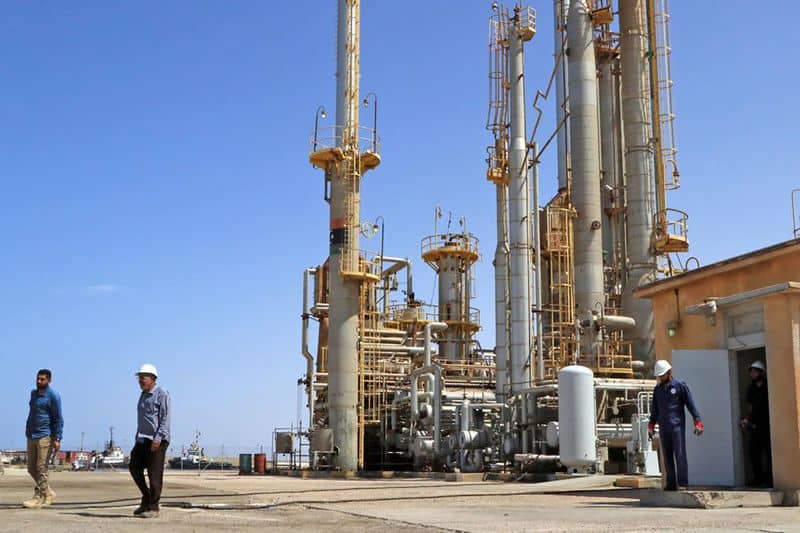Libya’s oil production has returned to the volume recorded before a months-long blockade that paralysed the economy, official sources said on Sunday.
“We are happy to announce that our production rates have reached the pre-force majeure levels” of 1.2 million barrels per day, Libya’s National Oil Corporation said on Twitter.
Oil and Gas Minister Mohammed Aoun told AFP that he “confirms” production has returned to that level.
On July 15, Libya’s new oil chief lifted force majeure at all the country’s oil fields and export terminals as groups besieging several installations ended a blockade that had begun in mid-April.
Force majeure is a legal measure allowing companies to free themselves from contractual obligations in light of circumstances beyond their control.
The NOC, vital to oil-rich Libya’s economy, has repeatedly resorted to the mechanism amid blockades of oil installations through years of violence and political upheaval following the NATO-backed revolt that toppled and killed dictator Moamer Kadhafi in 2011.
Conflict in recent years broadly pitted authorities in the capital Tripoli against a camp in the east, where parliament is based.
As the country’s divided authorities struggled for power, groups close to the eastern camp blockaded six oil fields and export terminals over demands for a more “equitable distribution” of hydrocarbon revenues.
Oil production fell to around 400,000 barrels of crude per day during the mid-April to mid-July blockade.
Western diplomatic sources said the eastern-based camp agreed to reopen the facilities in exchange for a share of oil revenues for spending in regions under their control.
The deal, which has not been confirmed officially, also saw the Tripoli based government of Prime Minister Abdulhamid Dbeibah replace veteran NOC head Mustafa Sanalla with Farhat Bengdara.
Bengdara is reportedly close to the United Arab Emirates, which supports the eastern-based camp.








